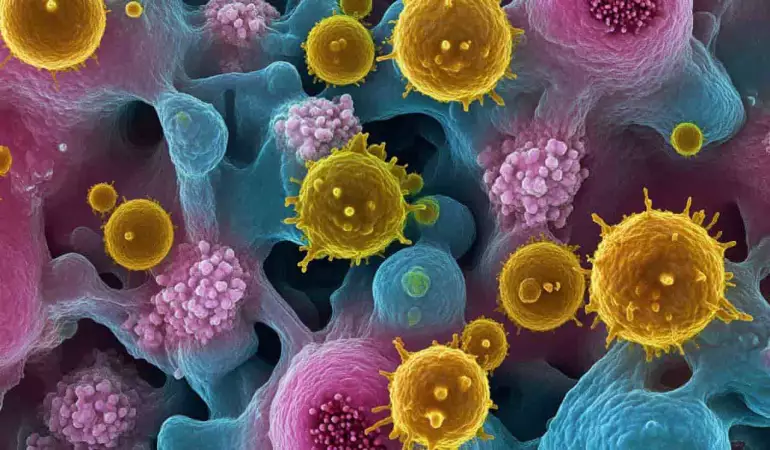New discovery: cancer cells can be returned to a healthy state
Scientists at the Korea Advanced Institute of Science and Technology (KAIST) have made an important discovery: they have found a molecular switch that can return cancer cells to their normal state. This discovery is based on a critical moment that occurs before the cancer has fully developed. Using a computer model of a gene network made up of RNA sequencing data from a single cell, they have uncovered the molecular mechanisms that allow the cancer process to be stopped and the cells to return to a healthy state.
February 16, 2025 06:42
Cancer repair therapy
Professor Kwang-Hyun Cho's team has recently received recognition for the development of an innovative cancer repair therapy.
This method does not destroy cancer cells, but changes their properties, returning them to a state close to normal cells.
This is the first time they have successfully uncovered a molecular switch hidden in the genetic network. The discovered switch can trigger the spread of cancer at the precise moment when normal cells turn cancerous.
KAIST has announced that Professor Cho's team from the Department of Bio and Brain Engineering has successfully developed a key technology to detect and analyse the critical transition point when normal cells become cancerous.
This breakthrough has led to the discovery of a molecular switch that can return cancer cells to their normal state.
Critical transition in cancer development
A critical transition is a phenomenon in which the state of a cell suddenly changes at a certain point, for example, water turns to steam at a temperature of 100℃.
A similar process occurs during cancer development, when normal cells turn cancerous due to genetic and epigenetic changes.
The Korean research team found that normal cells can go into an unstable state, where normal and cancer cells coexist before the cancer is completely gone.
Using systems biology techniques, they have developed technology to identify a molecular switch that can stop this transition.
By applying this approach to colon cancer cells, the researchers confirmed that cancer cells can regain the characteristics of normal cells.
Innovative computer-based approach to reversing cancer
An original technology automatically creates a computer model of the genetic network.
This model controls the critical transition in cancer development based on RNA sequencing data from a single cell. And, using simulation analysis, it systematically identifies the molecular switches that can trigger cancer reversal.
In the future, it is hoped that this technology will be applied to the development of reversal therapies for other cancers.
Professor Kwang-Hyun Cho stressed that the molecular switch discovered could reverse the fate of cancer cells and return them to a normal state.
He added that this study has revealed for the first time the genetic changes that take place in cells during the development of cancer, a process that has been kept secret until now.




